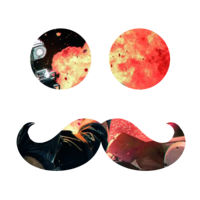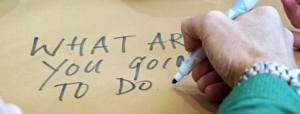
Art of Questions
Great questions broaden your horizon, change your perspective, and have the ability to connect people around a topic, without judgment.
Goal
In the process of change, you continuously have lots of questions. Which changes are coming our way? What Is our greatest challenge and why? What are the causes of this challenge and what is its underlying problem? How will we deal with this change? By asking open questions without judgment, you invite yourself and others to broaden your horizon and thus will generate deeper follow-up questions.
You can use questions to engage people in change, by letting them think in possibilities and alternatives. By asking good questions, you have the ability to uncover the real question behind the questions, which makes problem-solving easier.
Materials
Instructions
You can redefine your questions to generate true insights from your participants. Different types of questions lead to different answers. The more you consider the question, instead of immediately looking for answers, the more flexibility you develop to formulate questions that determine the question behind it.
Different types of questions lead to different answers:
- Why? Reasons, intentions, motivations, causes
- What? Ideas, definitions, (im)possibilities, investigations
- How? Solutions, approaches, actions, ideas, ways to operate
- Who? Stakeholders, target groups, owners, partners
- When? Timing, sequences, paths, steps, terms and conditions
- Which? Alternatives, possibilities
Example. First determine your goal, before you start asking questions to help you reach your goal. If the company already determined its end-goal, you can start asking questions to search for solutions to reach it. Therefore, you start asking “How” questions (How can we…?) to generate new ideas. Further in the process, a company might already have determined its goal and solutions, and therefore wants to know how to organize and measure its impact. You then want to ask “how” and “when” questions to understand how to organize change and how to measure its impact.
Background
The Right Question Institute - Experiencing the Question Formulation Technique



Comments (0)